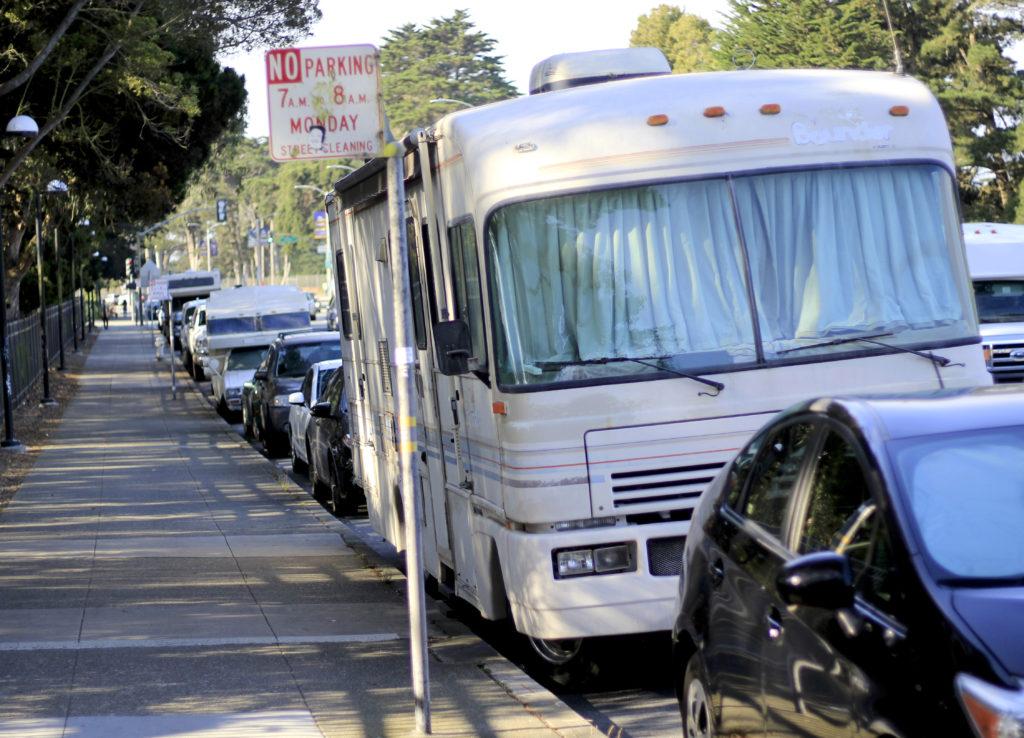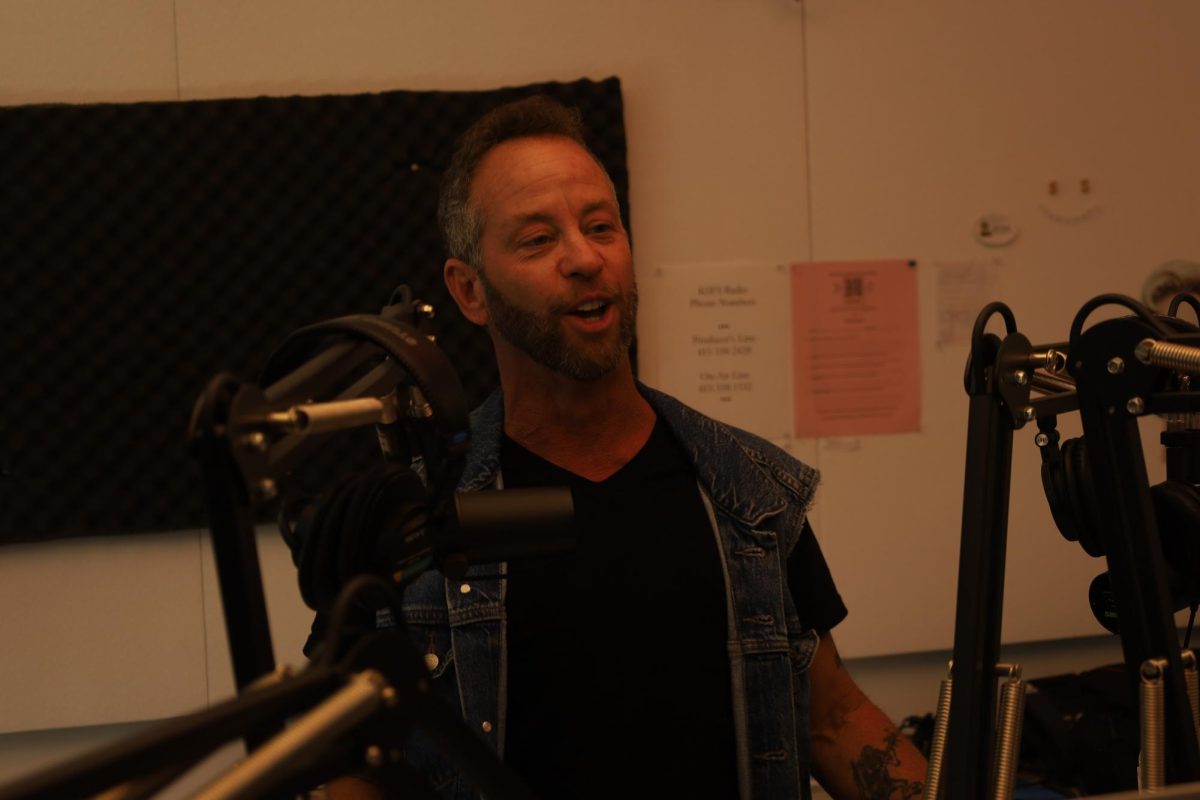First, they couldn’t find affordable housing. Now they can’t find hassle-free parking.
People living out of their vehicles amid San Francisco’s housing crisis are finding it increasingly difficult to park as some neighborhoods push legislation to ban overnight parking.
Alex Lane, a 23-year-old artist, said he struggled to find a place to park his brown van until someone suggested Winston Drive. He’s been there with his two pitbulls for two months.
“This is the last place in the city they let us park,” Lane said. “The only reason I’m parked over here is because the cops harass me over at Golden Gate Park and the Panhandle.”
Jennifer Friedenbach, executive director of the Coalition on Homelessness, said not every neighborhood is as welcoming.
Friedenbach said an increasing number of people are opting to live in their vehicles because the cost of housing in the city is too expensive for many.
“Some folks are putting the last bit of their money, or equity, into buying an RV,” she said. “It’s a much better situation than sleeping on the street. But they are still considered homeless by [police and the city].”
Over the last two years, she said bans on parking for extended periods of time displaced people who lived out of their vehicles in the Sunset and Richmond districts, Potrero Hill and “the Hairball,” a network of freeway overpasses in the southeastern part of the city.
Some of the people displaced by parking bans moved to two streets located only feet from SF State.
The San Francisco Municipal Transport Agency Board of Directors will decide on Sept. 18 whether to ban oversized vehicles from parking on De Wolf Street, a short street off Alemany Boulevard in the Excelsior.
Between 20 to 30 vehicles parked on Lake Merced Boulevard and Winston Drive are motorhomes and vans that people of various ages and professions use as living spaces, storage units or sometimes as dumpsters.
SFPD Officer Ian Richards, a member of the Homeless Outreach Team that patrols Parkmerced, said he’s clear that “it’s not a crime to be homeless.” But police also have to navigate regulations and public complaints, which are rare.
Richards said he’s heard no complaints about people living in vehicles in his district, and towings are infrequent because vehicles move at least one-tenth of a mile every 72 hours, which is in accordance with city law.
“The cars that are towed are either abandoned or have received multiple parking citations,” he said. “We don’t go down there and kick anyone out. Most people who live out there just want to be left alone and do their thing.”
Richards said the only way dozens of people living on Lake Merced Boulevard and Winston Drive would be forced to move is if the community pressured the SFMTA to pass a resolution, like what is happening in the Excelsior.
“We have to look at homelessness as a humanitarian issue,” he said. “Not as an issue of crime.”
University campus Police Chief Jason Wu said there has only been one complaint made to SF State in two years.

Jarlene Choy, legislative aide for Supervisor Norman Yee’s office, said over the past two years, Yee has received about a dozen email complaints about garbage, excrement and a lack of parking in locations where people park RVs or vans throughout District 7, which includes Parkmerced, West Twin Peaks and SF State.
Yee said while he understands some residents would like to see RVs banned on these streets, he would not support an outright ban.
“I believe we should take a more humane approach,” Yee said. “Especially since many of the individuals living in these RVs are good actors — students and families just struggling to survive in San Francisco.”
SF State student Josh Martinez, a 28-year-old from Illinois, is a former marine using the GI Bill to pay for school while he lives out of his van on Lake Merced Boulevard.
Martinez said he has not been frequently harassed by campus or city police over the three semesters he’s spent in his van.
“The cops are usually chill,” he said. “But every now and then I get a knock at my door at 3 a.m. by police telling me I got to move.”
Martinez, a cinema major at SF State, said even though there is not a sense of community among the people living out of their vehicles, most people are just trying to get by.







A.Goodman • Sep 18, 2018 at 7:45 pm
Part of this is the SFSU-CSU expansion and enrollment increases without adequate redevelopment of transit and housing needs prior. The new projects wont solve their housing issues, with higher end housing. Lacking investment in 19th Ave transit transformation, and increased inability to provide services to students on site. The side-parking shifts with every blockage, so the residents in RV’s become more transient as more affluent areas push them out of their areas, but ignore the real impacts of loss of rental housing citywide and especially in D7 post the sale to SFSU-CSU of UPN and UPS apartments. HUGE loss of rent-controlled housing, but nothing built since the gentrification that has occurred.